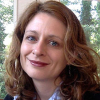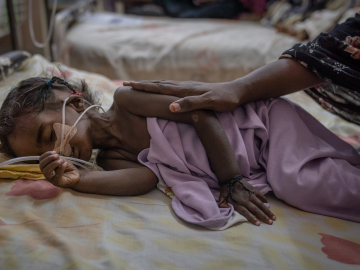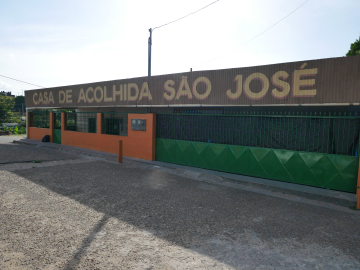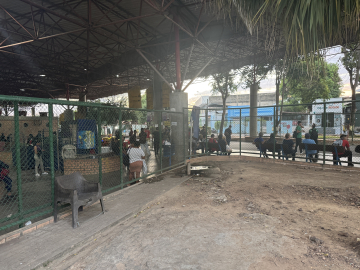The World Is Failing Its Refugees
Has the world stepped up to respond the plight of refugees since 3-year-old Alan Kurdi died and washed up on a Turkish beach as his family tried to reach safety?
Zaher Sahloul recalled the memory of Kurdi at a packed session on refugees at the Consortium of Universities for Global Health this past Saturday. He also shared a drawing by a Syrian second grader. Instead of drawing sun, sky, rivers and people smiling, the child drew barrel bombs dropping on houses and children being mutilated and dying—and the children who are dead are smiling.
Despite these profound tragedies, the US and other countries are failing to give refugees the help they need.
The Syrian crisis, for example, has 5.6 million people refugees—and the US is falling far short of its obligations. “I think all of us should be ashamed of this,” Sahloul, the president and co-founder of MedGlobal, said. On average, he said, the US had settled about 96,000 refugees a year since 1980. President Trump has steadily dropped the ceiling; it’s down to 30,000 in 2019.
He emphasized a truth he’s learned about refugees: Most people want to stay; they only leave in very extreme situations. Many of those who leave and end up in camps are spending a lifetime there; the average amount of time refugees spend in camps is now about 25 years.
The situation, he said, is not improving; with global warming and displacement it is getting worse.
In fact, the UN's current estimate—68.5 million—is an underestimate, according to Paul Spiegel, who spoke about the world’s broken humanitarian aid system.
“It’s time to change the system, it’s not working,” said Spiegel, director of the Center for Humanitarian Health in the Johns Hopkins Bloomberg School of Public Health’s Department of International Health. One reason is that so many crises are prolonged—yet most of the planning is still year-to-year. And, most aid still flows through the UN and international NGOs—and those funds are still coming primarily from high-income countries. Local/national NGOs receive a very small portion. Despite a pledge for local NGOs to receive 20% of the aid by 2020, “That’s not going to happen,” Spiegel said.
There are changes underway and expected, though, that will transform the future of humanitarian response systems. Spiegel is optimistic about changes such as cash-based interventions—given Syrian refugees ATM cards, for example. “It restores dignity and choice—you’re allowing them to choose,” he said. He cautioned, though, that they aren’t appropriate in all situations, such as famines. Another promising area: health insurance for refugees, which has been rolled out with Afghan refugees in Iran. In theory, such moves will help the host communities too, which have too often been overlooked.
“We have a lot of important ways to move forward and that is exciting, but also scary times in terms of the anti-refugee and anti-immigrant rhetoric increasing around the world,” Spiegel concluded.
The panelists explored ways to change the way people think about refugees, and concluded that personal stories help. “If people know one person personally their attitude changes,” said Heike Thiel de Bocanegra, PhD, MPH, of the Bixby Center for Global Reproductive Health at the University of California, San Francisco.
Jacob Atem illustrates this point well.
As a child in Kenya’s Kakuma refugee camp in the 1990s, he never saw school. He recalled that people would always give pencils and exercise books—and while they meant well, all he really needed at the time was food. He would go blind temporarily for lack of vitamins. In the camps, he said, “You were waiting for your death, for your grave.”
But Atem, one of the Lost Boys of South Sudan, made it out of the camp alive, and was resettled in Lansing, Michigan, in the US. He had to wait until the ninth grade for his education—but he did not waste the opportunity. He went on to college, majoring in biology, then earned his MPH and PhD. And he is not alone: “Most of the Lost Boys who came to this country are in medicine or the military,” he said. His cousin, he shared, served 3 tours in Iraq. “We don’t come for a handout; we just need an opportunity,” he said.
Atem’s deeply moving remarks brought people in the packed room in the Hilton Chicago Hotel to their feet yesterday. You can read more about Atem, now a postdoctoral fellow in the Center for Humanitarian Health in the Department of International Health of the Johns Hopkins Bloomberg School of Public Health, and his life story in Hopkins Bloomberg Public Health Magazine.
Join the tens of thousands of subscribers who rely on Global Health NOW summaries and exclusive articles for the latest public health news. Sign up for our free weekday enewsletter, and please share the link with friends and colleagues: http://www.globalhealthnow.org/subscribe.html
Australians stand in solidarity with refugees in honour of Aylan Kurdi. Image: Asanka Brendon Ratnayake/Anadolu Agency/Getty





